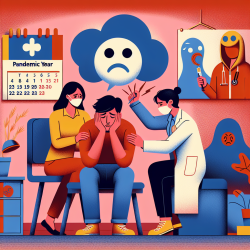In recent years, the opioid crisis has taken a significant toll on the U.S. healthcare system, with a particularly concerning impact on the pediatric population. A study titled "The Impact of Pediatric Opioid-Related Visits on U.S. Emergency Departments" sheds light on this pressing issue and offers insights that can help practitioners improve their skills and contribute to mitigating this crisis.
The Scope of the Problem
The research highlights that between 2014 and 2017, there were 59,658 pediatric visits related to opioids in emergency departments (EDs) across the United States. Alarmingly, 68.5% of these visits were due to overdoses or poisonings, with a mean patient age of 11.3 years. The majority of these cases involved teenagers, but infants also constituted a significant portion of visits.
Financial Implications
The financial burden of these visits is substantial. Charges exceeded USD 157 million during the study period, with Medicaid covering over half of these costs. This represents a significant portion of total ED expenses and underscores the need for targeted interventions.
Opportunities for Practitioners
Pediatric emergency physicians are at the forefront of addressing this issue. The study suggests several strategies that practitioners can implement:
- Early Screening and Intervention: Implement routine screening for opioid use disorders (OUD) in adolescents visiting EDs, especially those aged 14-17.
- Education and Training: Enhance training programs for healthcare providers to increase comfort with prescribing medications for OUD (MOUD) like buprenorphine or methadone.
- Community-Based Programs: Collaborate with community organizations to create support networks for at-risk youth and their families.
- Counseling and Support: Provide resources for parents to create supportive home environments that discourage substance use.
The Need for Further Research
The study emphasizes the importance of continued research into pediatric opioid use to develop evidence-based best practices. Practitioners are encouraged to contribute to this body of knowledge by participating in or initiating studies that explore effective interventions and treatment models for young populations.
The findings from "The Impact of Pediatric Opioid-Related Visits on U.S. Emergency Departments" provide a crucial foundation for understanding this crisis and taking actionable steps toward resolution. By implementing these strategies and advocating for further research, practitioners can play a pivotal role in curbing the epidemic's impact on children.










